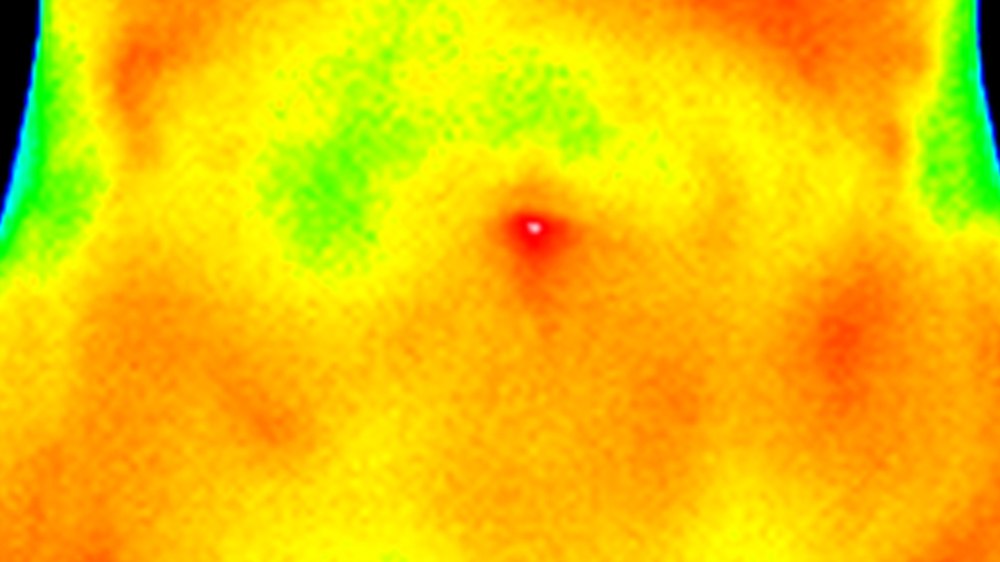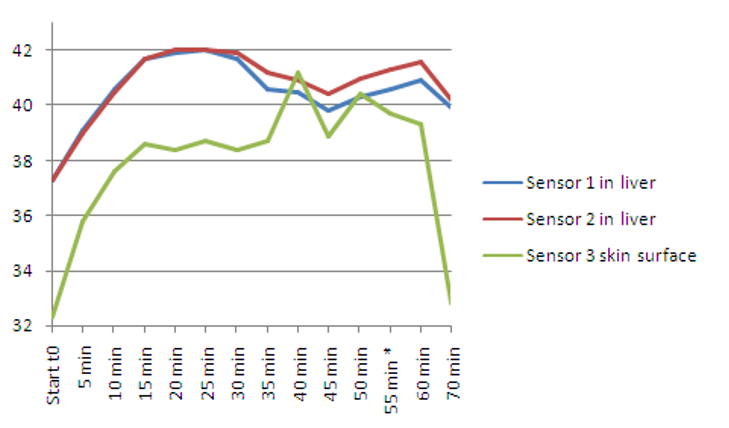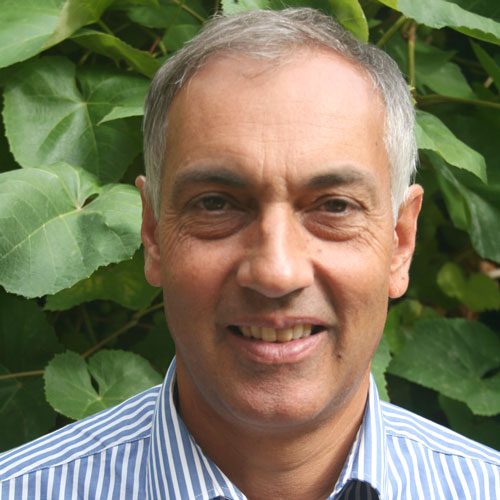
Regional Hyperthermia Temperatur - Example Liver
Example Liver
This case involved a patient with liver tumors. The measurement was taken invasively in this case, i.e. the patient agreed to have temperature sensors placed with a needle under imaging guidance. Two sensors were placed in the liver and one was located on the outside of the skin under the upper electrode (Dr. H.Sahinbas, Parmenides Outpatient Clinic, Bochum). Again, the two 250-mm electrodes were cooled down to 8 degrees Celsius. The treatment again lasted 60 minutes with a total power output of 590 kJ.

In the first 10 minutes, the temperature in the liver rose by 3.2 or 3.3°C to reach 40.6°C. This was followed by a maximum temperature of 42.0°C with a plateau above 40°C for 50 minutes, an ideal result.
Conclusion: It is feasible to achieve temperatures in the high fever range in deep-seated body locations. This depends significantly on the utilized technology and its handling. The application of outputs above 500 kJ with the Celsius42 device is a challenging treatment that demands a lot from the clinical staff and the patient. Temperature targets around 39°C have their rationale as well and are fully justified. Temperature targets in the moderate range may even be more favorable, especially to support immunological therapy goals. High temperatures ranging from 40 to 42 degrees Celsius should be pursued, for example, to intensify the effect of radiation therapy after its application.
Limitations will occur in patients with significant layers of fat above the actual target area. The heavier the patient, the more difficult it is to achieve a sufficient temperature gradient through the fat layers, which absorb much of the externally applied energy.
